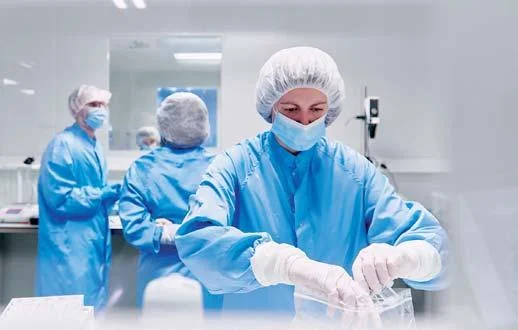Although Europe lags behind North America and Asia-Pacific in Advanced Therapy Medicinal Product (ATMP) development, Belgium has one of the highest densities of advanced therapy companies in the world, Euractiv reports.
As a key centre for ATMP development, Belgium, along with other European leaders, such as Sweden, France, the Netherlands and Germany, is excelling in biotechnology. According to the Boston Consulting Group, Belgium is thriving in attracting cell and gene therapy development, ranking second and third in the world in terms of research per capita.
The country is also home to around 9% of EU cell and gene therapy companies, highlighting its key role in the sector. The strength of the Belgian ecosystem lies in the seamless integration of university-industry collaboration, backed by strong government and regulatory support.
Denis Dufrane, MD, PhD, CEO and Founder of Novadip Biosciences, underscores the dynamic ATMP ecosystem in Belgium. Novadip Biosciences is leading the way in developing treatments for rare bone-related genetic diseases, bringing hope to patients facing the dreaded prospect of amputation.
“Belgium is a country with a lot of research and clinical activities in the field of ATMP development, both in academia and industry. In addition, Belgian authorities with the Federal Agency for Medicines and Health Products have developed a large expertise in this field.”
Despite Europe’s considerable efforts, it still lags behind North America and Asia-Pacific in the development of advanced treatments, according to the Alliance of Regenerative Medicine (ARM).
With just 495 companies, compared to 1,088 in North America and 859 in Asia-Pacific, Europe faces a significant deficit. This gap extends to clinical trials, with only 358 ongoing trials in Europe, compared to 972 in North America and 790 in Asia-Pacific.
On April 10, the plenary of the European Parliament adopted its stance on the revised pharmaceutical legislation. The case will be considered by the new Parliament after the European elections taking place on 6-9 June.
Proposed changes to EU pharmaceutical legislation and the Health Technology Assessment (HTA) had the potential to impede progress, the Brussels-based Alliance for Regenerative Medicine noted.
In general, the pharmaceutical legislation is focused on conventional medicines rather than ATMPs, which is a disappointment given ATMPs’ potential to transform medicine. That said, the European Parliament has made some improvements.
The European Parliament brought notable improvements to the proposals, especially in recognising the impracticality of provisions on the conditions for launching ATMPs targeting rare diseases. Moreover, The European Confederation of Pharmaceutical Entrepreneurs (EUCOPE) expressed optimism about the Commission’s proposals designed to improve the regulatory framework for ATMPs and new treatments, Dr Alexander Natz highlighted.
“The introduction of the regulatory sandbox, streamlining of environmental risk assessments for GMO medicines during clinical trials, and the introduction of a robust framework for Platform Technologies will support the assessment of these therapies and competitiveness of the EU.”
However, he stressed that other developments in pharmaceutical legislation and the wider pharmaceutical ecosystem also needed to be taken into account when considering the EU’s global competitiveness in that sector.
